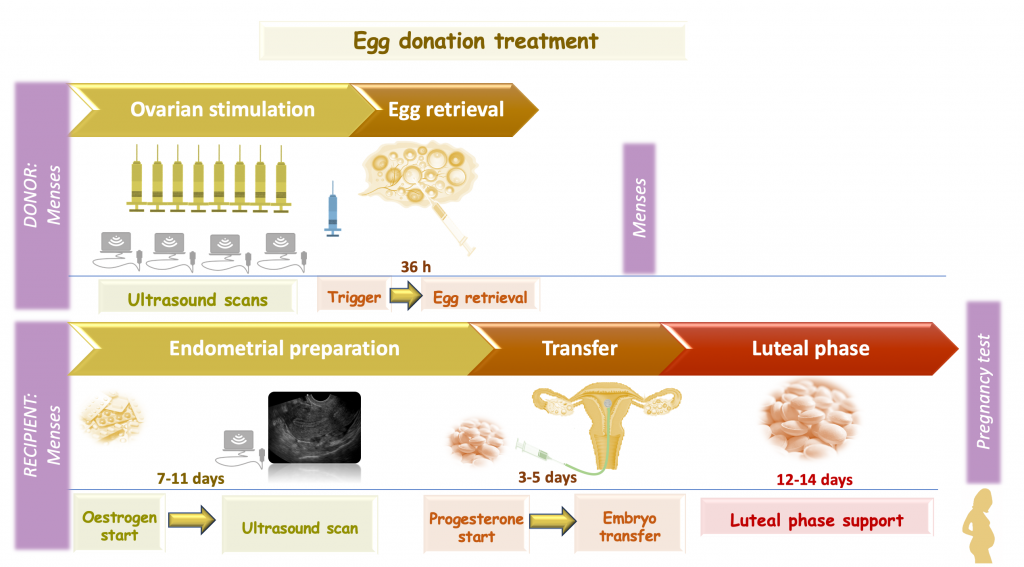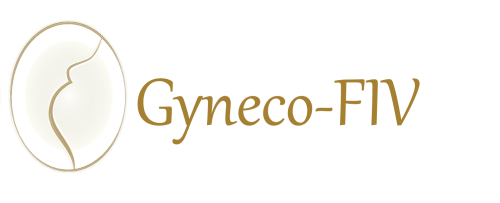The oocyte reception treatment, also known as egg-donor ivf or egg donation is a treatment that involves the donation of eggs from one woman to another in order to achieve a pregnancy.
Egg donation allows pregnancy in women who cannot achieve it with their own eggs. This is the case of patients with genetic diseases, premature ovarian failure, oocyte quality or women whose age implies insufficient oocyte quality to achieve viable embryos.
Due to the delay of motherhood in Western societies, egg donation is an increasingly used treatment, since the chances of achieving a healthy newborn decrease as the maternal age advances. Thus, after 35 years of age, a woman’s fertility progressively decreases and after 42 years, the chances of spontaneous pregnancy are very low.
In egg donation, a young woman in good physical and mental health undergoes a controlled ovarian stimulation treatment in order to obtain the eggs from her ovaries through a follicular ponction.
Once the eggs have been obtained, they will be fertilized in the laboratory with the semen of the couple or a donor to obtain embryos.

These embryos will be transferred into the uterus of the recipient after 3 or, more frequently, 5 days of development in the laboratory and after 12-14 days the pregnancy test will confirm the success or not of the procedure.
The recipient treatment protocol is very simple and can be performed in synchronization with the donor’s stimulation or in a deferred cycle, if vitrified oocytes are used.
In both cases, the success rates are very good, since donor eggs allow obtaining embryos of the highest quality.

